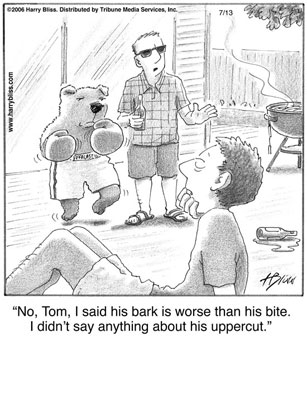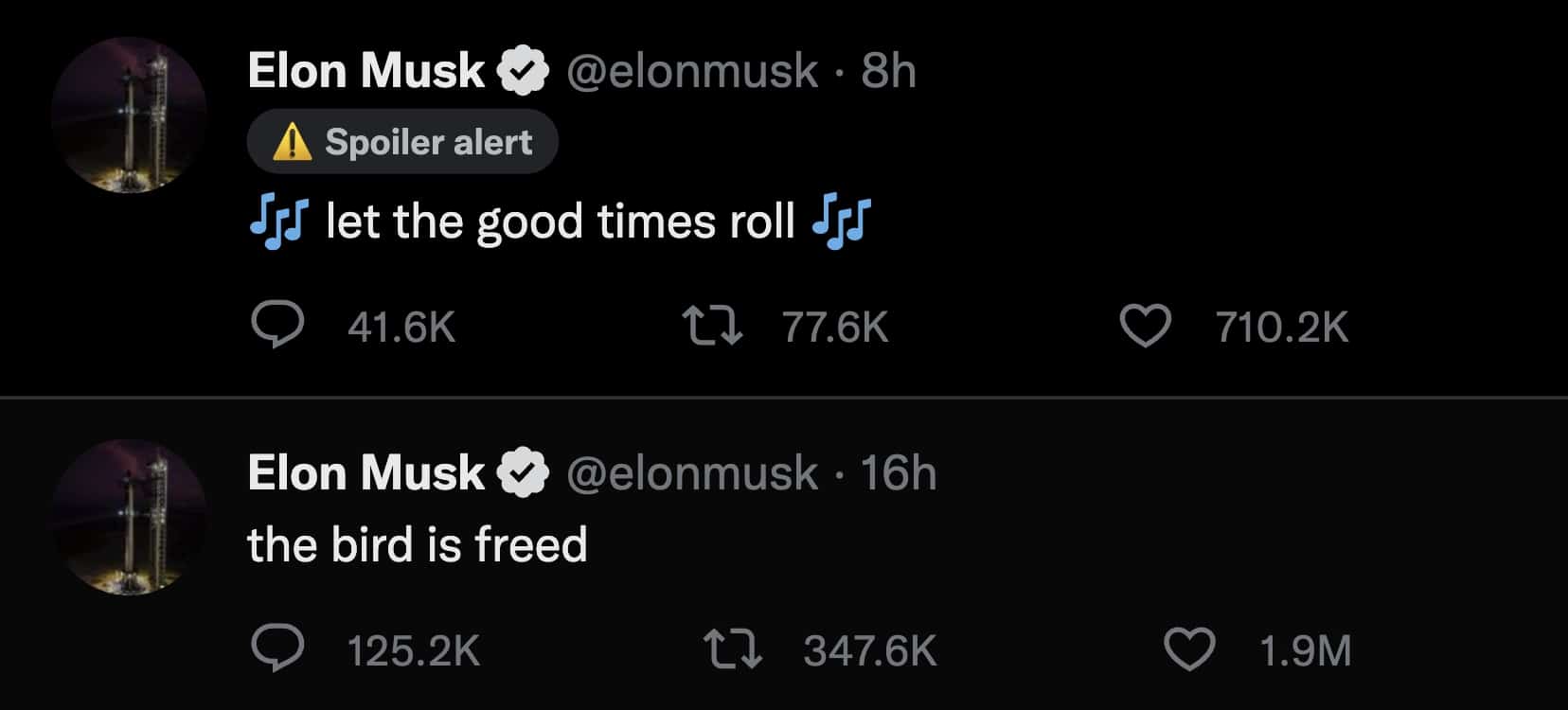Veterinary Watchdog Investigations: Bark Worse Than Bite?

Table of Contents
Understanding Veterinary Watchdog Investigations
Who Conducts These Investigations?
Veterinary watchdog investigations are conducted by various organizations, each with its own jurisdiction and investigative powers. These entities play a vital role in maintaining ethical standards within the veterinary profession.
- State Veterinary Boards: These boards are typically responsible for licensing, regulating, and disciplining veterinarians within their respective states. Their investigations often focus on complaints related to professional misconduct, such as malpractice or negligence. Their powers vary by state, but often include the ability to issue warnings, fines, license suspensions, or revocations.
- Professional Veterinary Organizations: Groups like the American Veterinary Medical Association (AVMA) often have their own ethics committees that investigate complaints against members. While they lack the licensing authority of state boards, their investigations can lead to sanctions, such as reprimands or expulsion from the organization.
- Federal Agencies: In cases involving animal abuse or violations of federal laws, agencies such as the USDA may conduct investigations. Their jurisdiction typically focuses on specific areas, such as animal research or large-scale animal operations.
The procedures and scope of investigations can vary significantly depending on the investigating body and the specific location.
Types of Complaints Leading to Investigations
Complaints leading to veterinary watchdog investigations encompass a wide range of issues impacting animal welfare and professional ethics.
- Malpractice: This involves professional negligence resulting in harm to an animal, such as misdiagnosis, improper treatment, or surgical errors.
- Negligence: This involves a failure to provide adequate care, resulting in injury or suffering to an animal. This could include inadequate pain management or failure to provide necessary veterinary attention.
- Inadequate Care: This is a broad category encompassing a wide range of substandard practices, from unsanitary facilities to inappropriate handling of animals.
- Fraudulent Billing: This involves submitting false or inflated claims for veterinary services.
- Animal Abuse or Neglect: While often handled by separate agencies, these cases can also trigger investigations by veterinary boards if they involve professional misconduct.
For example, a complaint alleging a veterinarian misdiagnosed a pet's condition, leading to delayed treatment and worsened health, would trigger an investigation. Similarly, a complaint about excessive billing for unnecessary procedures could also initiate an investigation into fraudulent practices. The severity of the alleged misconduct directly influences the urgency and intensity of the investigation.
The Investigation Process: From Complaint to Resolution
Filing a Complaint: What to Expect
Filing a complaint typically involves providing detailed information about the incident, including dates, times, and all relevant supporting evidence such as medical records, photos, or witness statements.
- Gather Evidence: Thoroughly document everything—vet bills, medical records, communication records (emails, phone calls), photos, and witness statements.
- Write a Clear and Concise Complaint: Clearly outline the events, the alleged misconduct, and the desired outcome. Avoid emotional language and focus on factual information.
- Submit the Complaint: Follow the instructions provided by the relevant organization (state veterinary board, professional organization).
- Expect Delays: The investigation process can take time, often months or even years. Be patient and persistent.
Thorough documentation is critical. Clear and concise complaint writing significantly increases the likelihood of a thorough investigation.
The Investigative Stage: Gathering Evidence & Interviews
Once a complaint is filed, an investigation is launched. This usually involves gathering evidence and conducting interviews.
- Reviewing Veterinary Records: Investigators examine medical records to determine the accuracy of diagnoses, treatments, and billing practices.
- Witness Interviews: Statements from pet owners, veterinary staff, or other witnesses are crucial to reconstructing the events.
- Expert Witnesses: In complex cases, the investigator may consult experts in veterinary medicine to assess the quality of care provided.
Gathering evidence in veterinary cases can be challenging, particularly in securing complete and accurate veterinary records, and obtaining reliable witness testimonies.
Outcomes and Penalties for Veterinarians
The outcomes of veterinary watchdog investigations vary depending on the findings.
- Dismissal of Complaint: If the investigation finds insufficient evidence to support the allegations.
- Reprimand: A formal warning issued to the veterinarian.
- License Suspension: Temporary suspension of the veterinarian's license to practice.
- License Revocation: Permanent revocation of the veterinarian's license.
- Fines: Financial penalties imposed on the veterinarian.
The effectiveness of penalties in deterring future misconduct is a subject of ongoing debate. Transparency regarding investigation outcomes is essential for public trust. Many state boards publish summaries of disciplinary actions, providing some level of public access to the results of investigations.
Effectiveness and Limitations of Veterinary Watchdog Investigations
Success Stories and Impact on Animal Welfare
While challenges exist, veterinary watchdog investigations have led to positive changes in animal care and increased professional accountability. Successful cases have resulted in improved standards of care, changes in veterinary practices, and disciplinary actions against negligent veterinarians.
Challenges and Criticisms of the System
The system faces several limitations that hinder its effectiveness.
- Underreporting: Many pet owners may be unaware of the process, or fear retaliation for filing a complaint.
- Resource Constraints: Many investigative bodies face budgetary limitations, restricting their ability to thoroughly investigate all complaints.
- Lack of Consistency: Variations in investigative procedures and penalties across different jurisdictions can lead to inconsistencies in outcomes.
These factors contribute to a system that, while essential, may not always achieve its full potential in protecting animal welfare.
Improving the System: Recommendations for Reform
Significant improvements could enhance the effectiveness of veterinary watchdog investigations.
- Increased Funding: Providing adequate resources to investigative bodies is crucial for thorough investigations.
- Enhanced Transparency: Making investigation outcomes more readily accessible to the public increases accountability.
- Improved Accessibility for Complainants: Simplifying the complaint process and providing support to complainants will encourage more reporting.
- Stronger Penalties: Implementing more robust penalties for serious misconduct will act as a greater deterrent.
- Mandatory Continuing Education: Requiring regular continuing education focused on ethics and best practices can help prevent future misconduct.
Conclusion
Veterinary watchdog investigations play a crucial role in maintaining professional standards and protecting animal welfare. While the system faces challenges, including resource constraints and the complexities of investigating veterinary malpractice, it remains a vital tool for accountability. Understanding the process, from filing a complaint to potential outcomes, empowers pet owners and advocates to navigate this system effectively. By addressing limitations and advocating for reform, we can strengthen veterinary watchdog investigations and ensure a higher standard of care for animals everywhere. If you believe you have experienced veterinary malpractice, researching and understanding the process of initiating a veterinary watchdog investigation is crucial to advocating for your pet and ensuring accountability within the profession.

Featured Posts
-
 Saint Jean De Luz Ameliorer La Gestion Du Retrait Du Trait De Cote
May 31, 2025
Saint Jean De Luz Ameliorer La Gestion Du Retrait Du Trait De Cote
May 31, 2025 -
 Is Elon Musks Reign Coming To An End
May 31, 2025
Is Elon Musks Reign Coming To An End
May 31, 2025 -
 Transgender Student At Center Of Trumps California Funding Threat What We Know
May 31, 2025
Transgender Student At Center Of Trumps California Funding Threat What We Know
May 31, 2025 -
 Thompsons Monte Carlo Misfortune A Detailed Look At His Struggles
May 31, 2025
Thompsons Monte Carlo Misfortune A Detailed Look At His Struggles
May 31, 2025 -
 The Emerging Threat A New Covid 19 Variant And Its Implications
May 31, 2025
The Emerging Threat A New Covid 19 Variant And Its Implications
May 31, 2025
